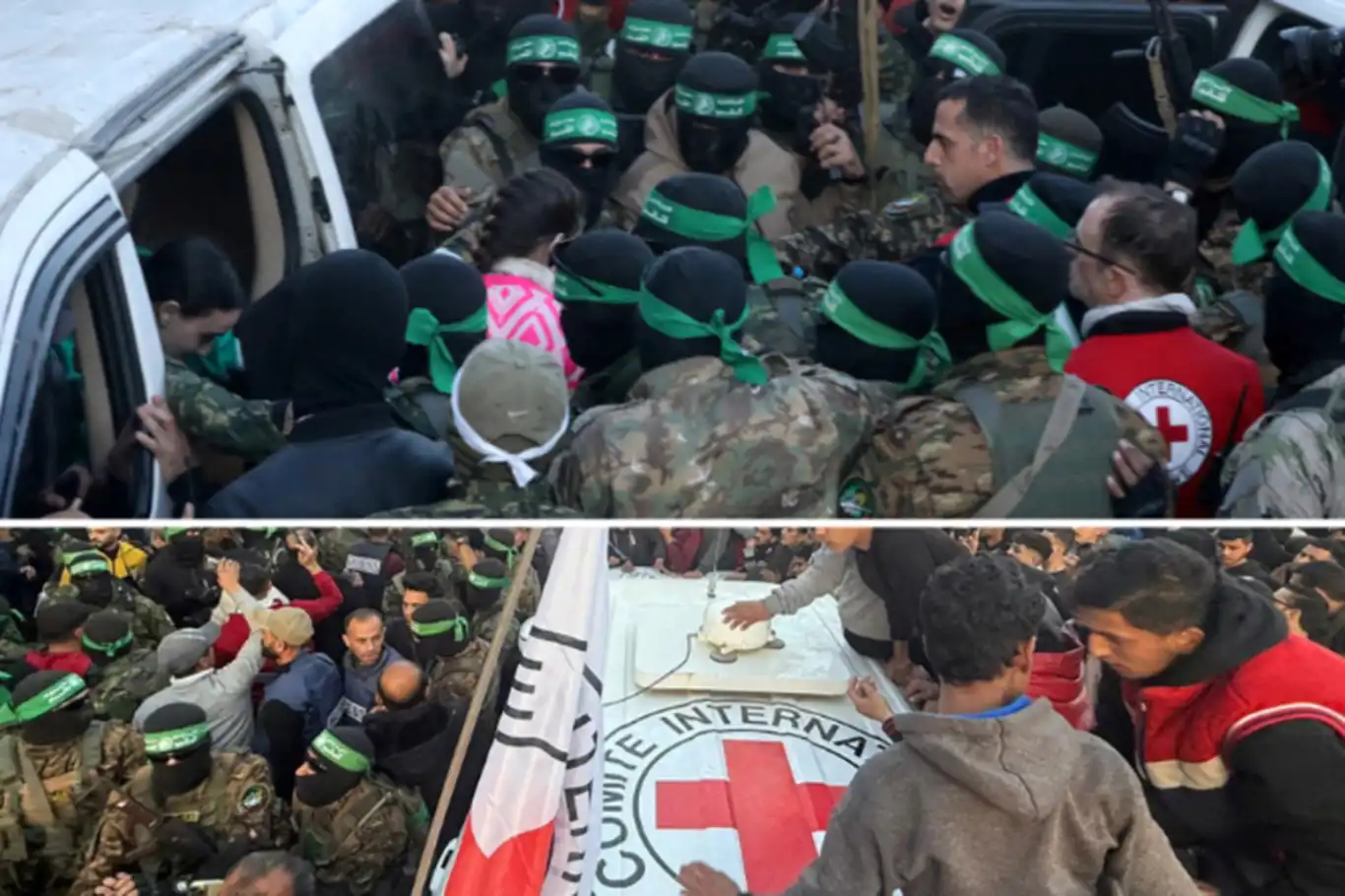Three Israeli captives released as Gaza ceasefire begins


Three Israeli women were released by Hamas on Sunday, marking the first day of a ceasefire agreement between Israel and Hamas that followed over 15 months of relentless Israeli attacks on Gaza.
The women—Emily Damari, 28, Doron Steinbrecher, 30, and Romi Gonen, 23—had been held captive for 471 days and were handed over to Israeli forces through the Red Cross.
Their release comes as part of a three-phase ceasefire agreement that includes the gradual release of 33 Israeli captives by Hamas in exchange for hundreds of Palestinian detainees imprisoned by Israel. On Sunday, the first 90 Palestinian prisoners—primarily women and children from the occupied West Bank and East Jerusalem—were set to be released.
The ceasefire begins after Israel's sustained military campaign devastated Gaza, leaving over 46,900 Palestinians dead, including thousands of women and children. Gaza now lies in ruins, with its infrastructure, homes, and basic services almost entirely destroyed. The ongoing humanitarian crisis has displaced millions, while international condemnation grows over the scale of destruction and the staggering loss of civilian lives.
Abu Ubaida, spokesperson for Al-Qassam Brigades, reiterated the commitment of Palestinian resistance factions to the ceasefire but stressed that this is contingent on Israel adhering to its terms.
In a televised statement, Ubaida described the October 7 "Operation Al-Aqsa Flood" as a turning point, highlighting the significant damage inflicted on Israeli forces, including the destruction of 2,000 military vehicles. He stated that the resistance had forced Israel to confront its vulnerabilities and shattered its long-held deterrence narrative.
"The steadfastness of Gaza’s residents is a source of pride for the Palestinian nation," Ubaida said, calling for continued support for the resistance.
Israeli officials praised the return of the captives, with Prime Minister Benjamin Netanyahu describing it as a “great moment” in a televised statement. The Israeli military, however, has emphasized its readiness to resume military operations should the ceasefire terms be breached.
The recent ceasefire comes in the wake of the October 7, 2023, assault by Hamas, which resulted in 1,200 deaths in Israel and the abduction of 250 individuals. The subsequent Israeli military response, however, has disproportionately impacted Gaza, causing mass casualties, displacing millions, and drawing widespread criticism for its excessive use of force.
While the ceasefire brings a brief respite, the vast destruction and human suffering in Gaza underscore the deep-seated injustices faced by Palestinians under occupation, fueling calls for a just resolution to the ongoing conflict. (ILKHA)
LEGAL WARNING: All rights of the published news, photos and videos are reserved by İlke Haber Ajansı Basın Yayın San. Trade A.Ş. Under no circumstances can all or part of the news, photos and videos be used without a written contract or subscription.
In an official statement released on Monday, Hamas said the commanders were killed after “a long journey of resistance, planning, preparation, and building strength,” dedicated to defending Palestinian land, holy sites, and national rights, with particular emphasis on Jerusalem and the Al-Aqsa Mosque.
Russia has accused Ukraine of attempting to attack a state residence used by President Vladimir Putin in the northwestern Novgorod region, a claim that, if confirmed, would mark a significant escalation in the conflict between the two countries.
The Al-Qassam Brigades announced on Monday the martyrdom of their longtime and iconic spokesperson, known to millions of Palestinians and supporters worldwide as Abu Obaida, revealing his real name for the first time as Hudhaifa al-Kahloot.
The United Nations Relief and Works Agency for Palestine Refugees (UNRWA) said on Monday that approximately 235,000 people in the Gaza Strip were affected by Storm Byron, which struck the besieged enclave between December 10 and 17, causing the collapse of buildings and widespread damage to tents and temporary shelters.